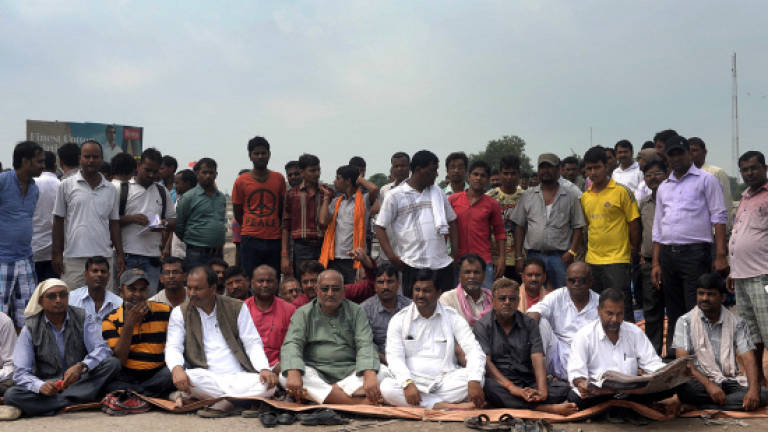Nepal anti-charter protesters block India supplies

KATHMANDU: Hundreds of protesters blocked a major trading checkpoint between India and Nepal Friday, cutting off vital supplies to the landlocked Himalayan nation as anger deepened over the country's new constitution.
The protesters, who belong to the Madhesi community, are angry about plans to divide the country into seven federal provinces under the charter adopted on Sunday.
More than 40 people have died in weeks of clashes between police and protesters from the Madhesi and Tharu communities, ethnic minorities who say the new internal borders leave them under-represented in the national parliament.
"We blocked the crossing overnight and we will not budge until the government listens to us and makes changes to these new borders in the constitution," said Shiva Patel, general secretary of the regional Sadbhawana party.
The blocked checkpoint in Birgunj town, 90km south of the capital, serves as the key hub for oil and food imports into Nepal.
"Normally hundreds of trucks would pass through this checkpoint overnight but not even one turned up last night," Patel told AFP by telephone from Birgunj.
"The blockade is our last resort to make the government understand our demands," he said.
Fears of a fuel shortage has seen dozens of commuters line up at gas stations in Kathmandu while the ongoing protests have sparked concern in India, which has traditionally exerted significant political influence in Nepal.
"Our freight forwarders and transporters...(have) voiced complaints about the difficulties they are facing in movement within Nepal and their security fears, due to the prevailing unrest," said New Delhi in a statement released Friday.
"Nepalese leadership needs to address the causes underlying the present state of confrontation credibly and effectively. Issues of differences should be resolved."
Nepal's Prime Minister Sushil Koirala this week cancelled plans to visit the United States and address the United Nations General Assembly so he could hold talks with protesters, underscoring the severity of the situation.
The charter, Nepal's first to be drawn up by elected representatives, is the final stage in a peace process that began when Maoist rebels laid down arms in 2006 after a decade-long insurgency aimed at creating a more equal society.
Work on the document began in 2008 after the Maoists won parliamentary elections and abolished the monarchy. But power-sharing squabbles between parties stymied progress on the draft.
Lawmakers finally reached agreement in June this year, spurred by a 7.8-magnitude earthquake two months earlier that killed nearly 8,900 people and destroyed more than half a million homes. – AFP